Member Directory,
1847 - 1922
Wolcott Gibbs
Chemist
Centurion, 1852–1908
George H. Moore
New York (Manhattan), New York
Newport, Rhode Island
Age thirty
Portsmouth, Rhode Island
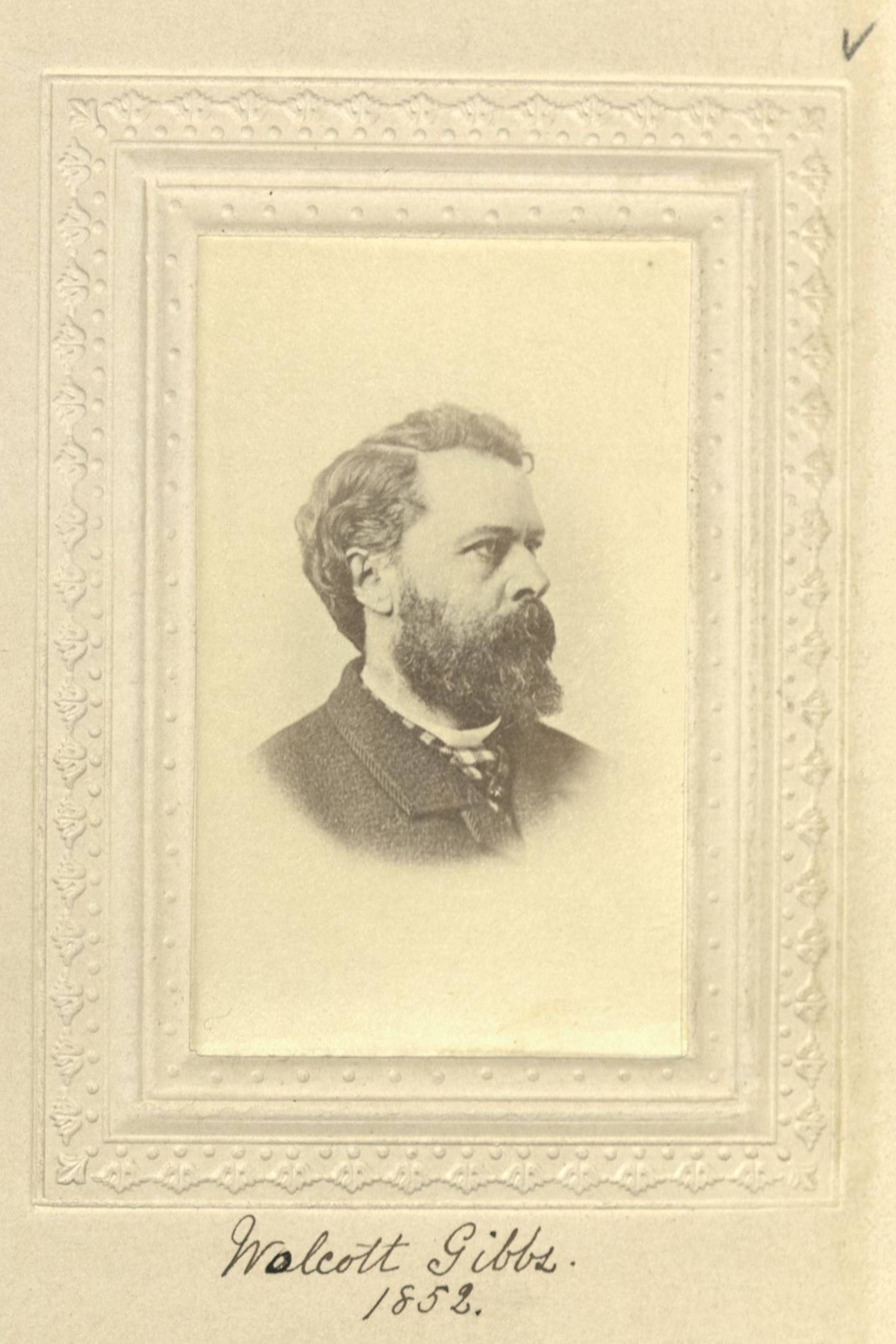
Archivist’s Notes
Brother-in-law of Lucius Tuckerman; cousin of Theodore Kane Gibbs; uncle of Bayard Tuckerman and Walter C. Tuckerman; great-uncle of Wolcott Gibbs
Century Memorial
Oliver Wolcott Gibbs had been for fifty-six years a member of The Century when he died at eighty-six; a tried, respected, and victorious veteran in both natural science and in education. He was born in New York, graduated from Columbia and the College of Physicians and Surgeons, studied chemistry in Europe under the three greatest chemists of the age, Rose, Liebig, and Reynault, and returned to accept a chair of chemistry in what is now the College of the City of New York, a position which he adorned for fourteen years, enhancing his own renown and that of his chair by his continuous contributions to both popular and professional knowledge of the new chemistry. Thereupon he was called to the Rumford professorship of the application of science to the useful arts in the Lawrence Scientific School of Harvard University, a chair which had been held by a chemist and was felt to be preëmpted for chemistry. In this discipline he made himself and his college laboratory alike useful and famous, until forced by the guardians of the foundation to interpret the language of his charge literally and abandon his laboratory for instruction in applied physics. Having ample private means, he opened a chemical laboratory of his own, making epochal contributions to both inorganic chemistry and one high specialty in metallurgy. After twenty-four years of service he retired from the chair and became, as Secretary, and later President, of the National Academy of Science, almost the dean of his colleagues.
But he was far more than a research specialist, more than an organizer, more than a great teacher: behind all these activities there was a questioning spirit, a broad culture, a philosophic mind. The home of his parents was permeated with the intellectual and rationalistic atmosphere which connection with Channing domesticated in that and similar circles; there were reading, discussion, and a cult of beauty in his earliest surroundings. To the close this elevation of soul, this fearlessness, this hearty acceptance of conclusions were mirrored in his face and carriage. As a man, his sympathy was broad. He was an active member of the Sanitary Commission during the Civil War, was one of the group from which sprang the Union League Club, and later was a Commissioner to the Vienna Exposition. Five universities gave him their highest honors and his membership in the foremost scientific associations at home and abroad was evidence of his international reputation. To the interests for which The Century stands, he gave loving and unremitting attention. During an earlier epoch he was a frequenter of the place; and, even when resident elsewhere, he came as opportunity served because it was the renewal of old affection to see his friends here. Familiar with many worlds, including those of nature, men, and art, he gave abundantly of his experience, and his synthesis of life was always stimulating and ennobling.
William Milligan Sloane
1909 Century Association Yearbook
Related Members
Member Directory Home-
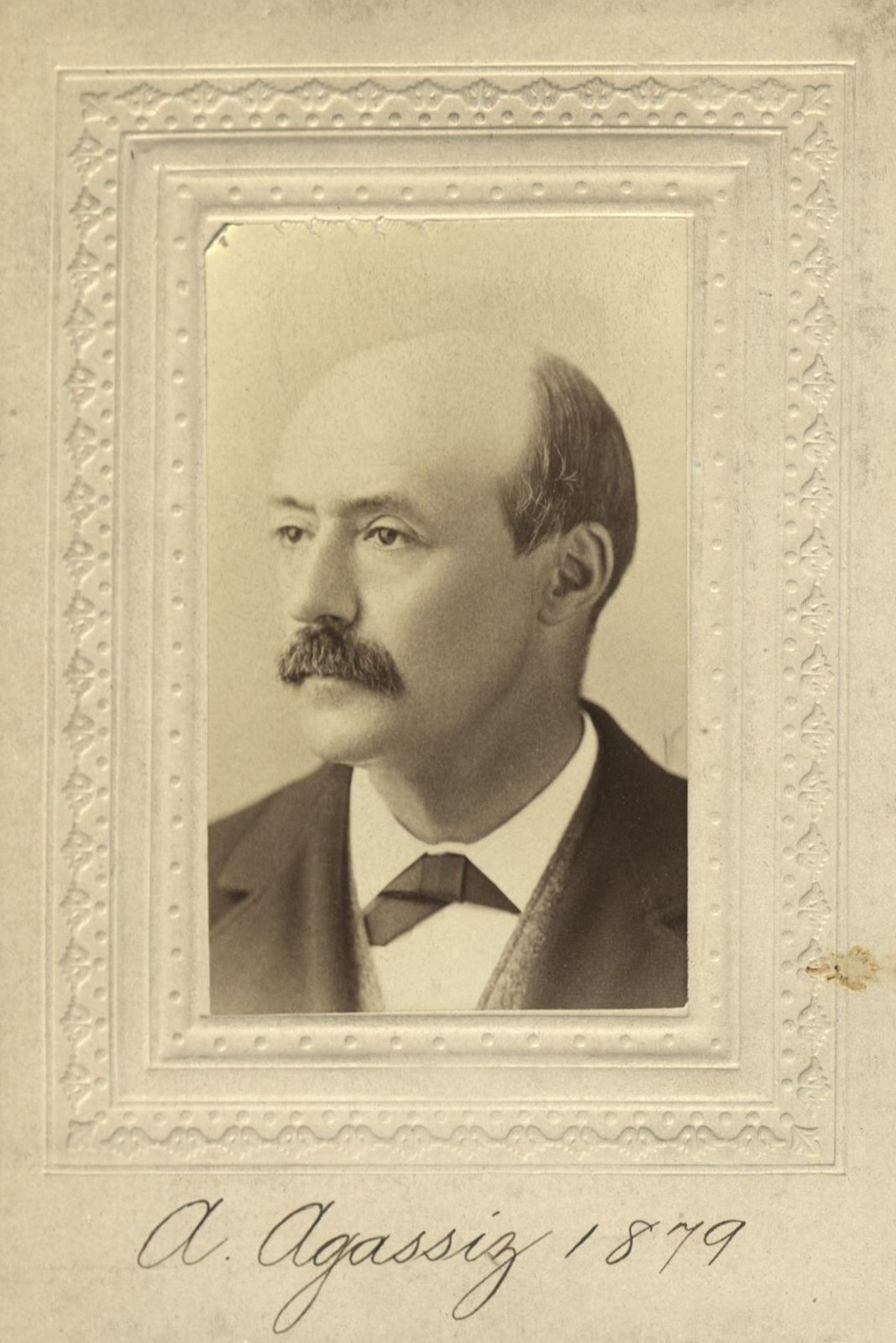 Alexander AgassizZoologist/Mining EngineerCenturion, 1879–1910
Alexander AgassizZoologist/Mining EngineerCenturion, 1879–1910 -
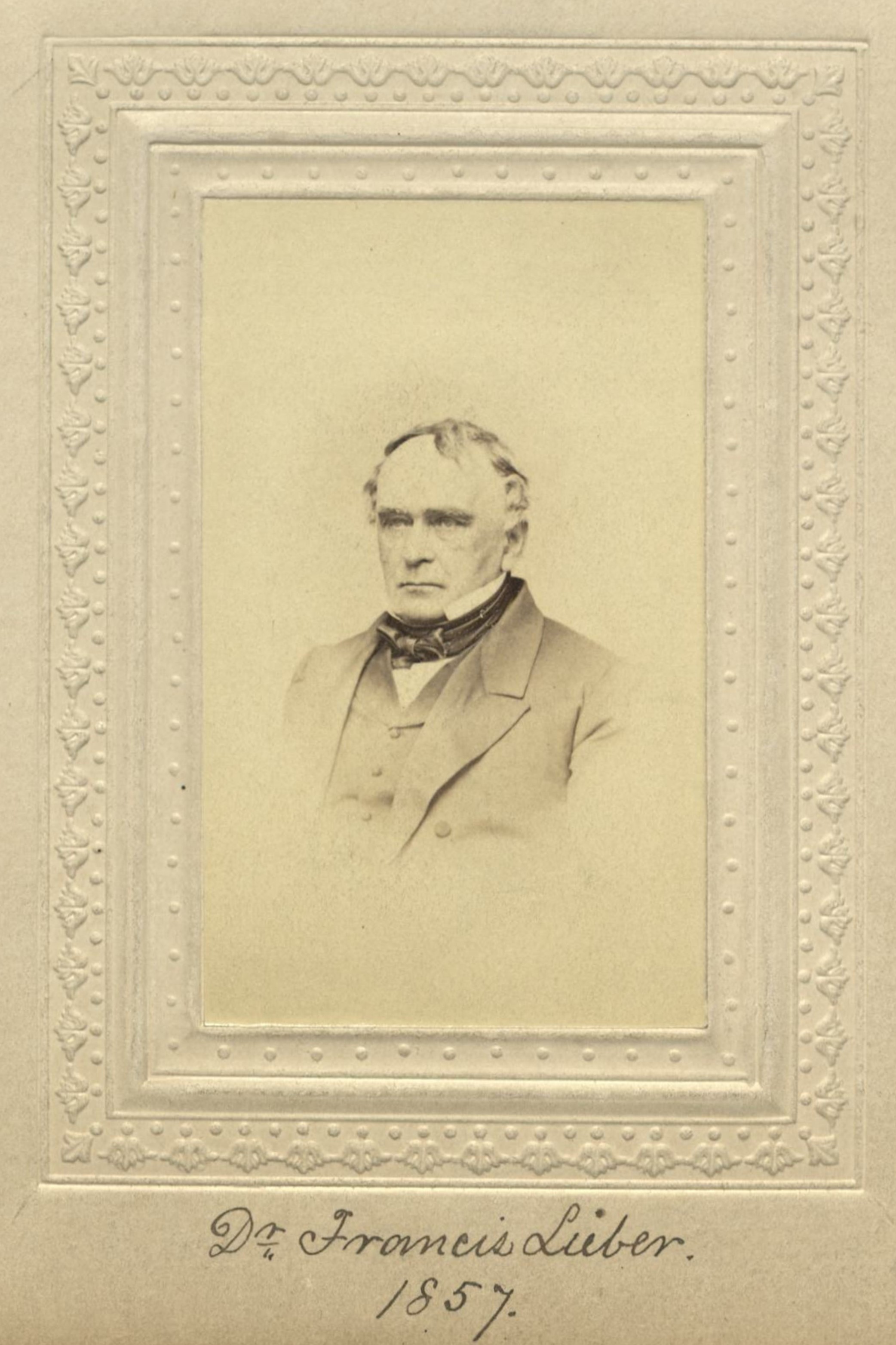 Francis LieberProfessor of Political EconomyCenturion, 1857–1872
Francis LieberProfessor of Political EconomyCenturion, 1857–1872 -
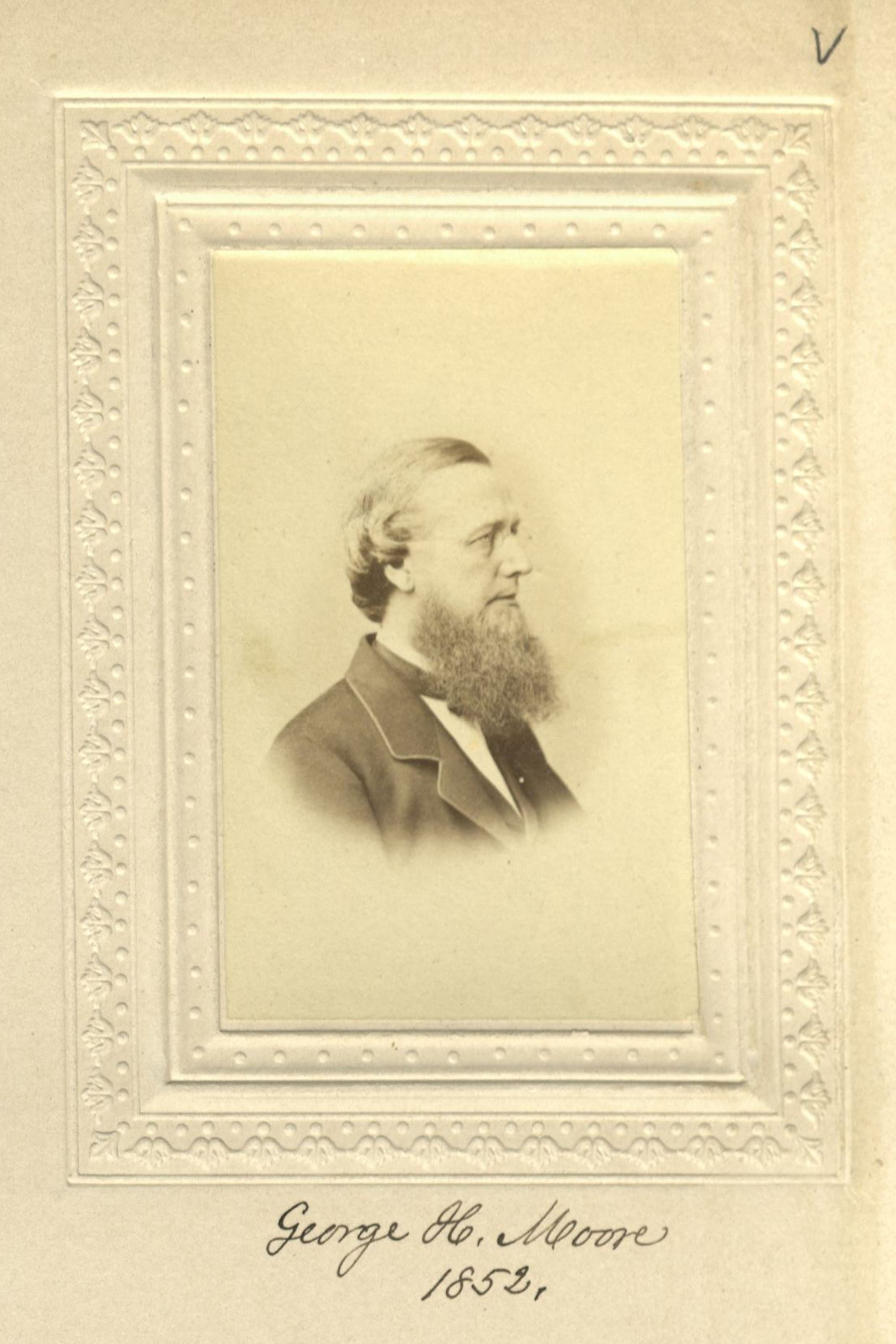 George H. MooreLibrarian, Historical SocietyCenturion, 1852–1862
George H. MooreLibrarian, Historical SocietyCenturion, 1852–1862 -
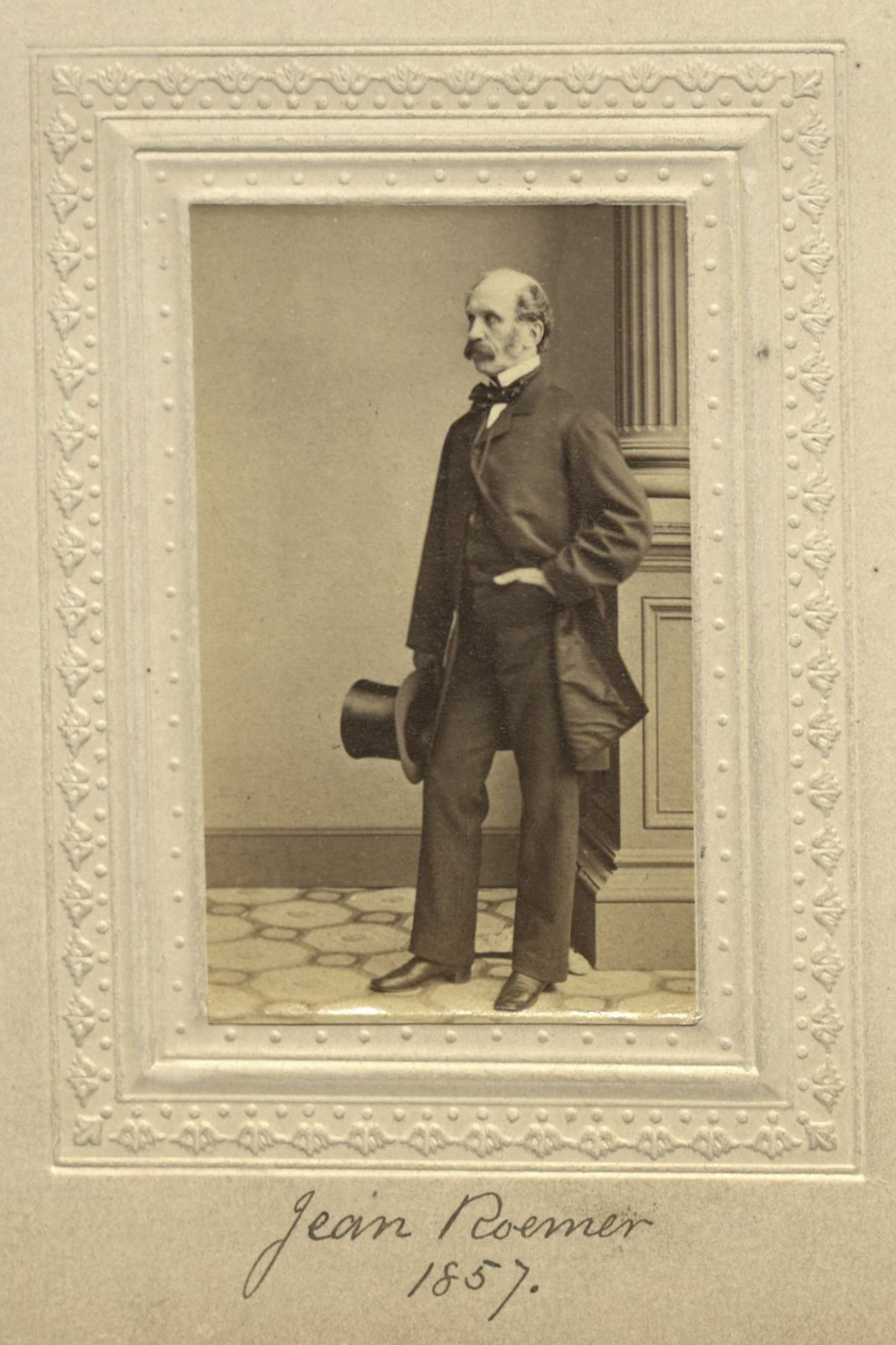 Jean RoemerProfessor of FrenchCenturion, 1857–1892
Jean RoemerProfessor of FrenchCenturion, 1857–1892 -
 James West RooseveltPhysicianCenturion, 1890–1896
James West RooseveltPhysicianCenturion, 1890–1896 -
 Alexander H. StevensPhysicianCenturion, 1862–Unknown
Alexander H. StevensPhysicianCenturion, 1862–Unknown -
 Otis D. SwanLawyer/BankerCenturion, 1858–1876
Otis D. SwanLawyer/BankerCenturion, 1858–1876 -
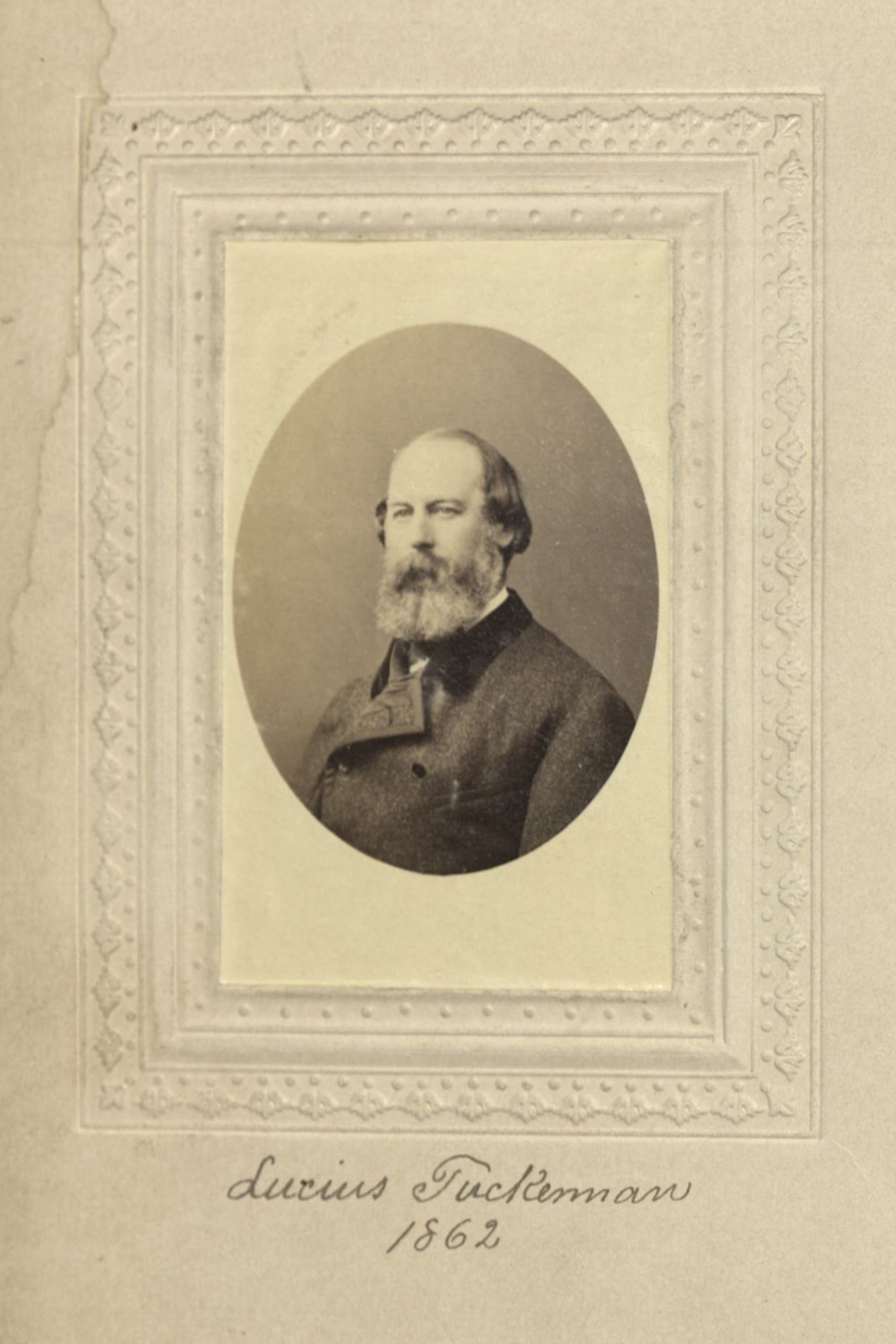 Lucius TuckermanManufacturer (Iron)/Civic AffairsCenturion, 1862–1890
Lucius TuckermanManufacturer (Iron)/Civic AffairsCenturion, 1862–1890





